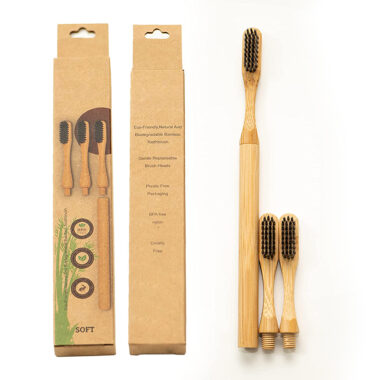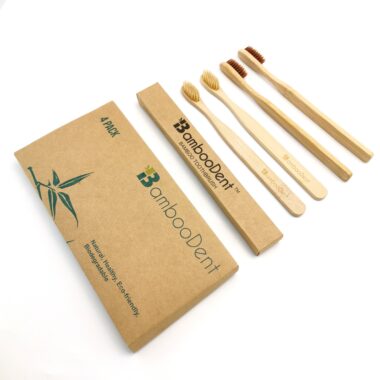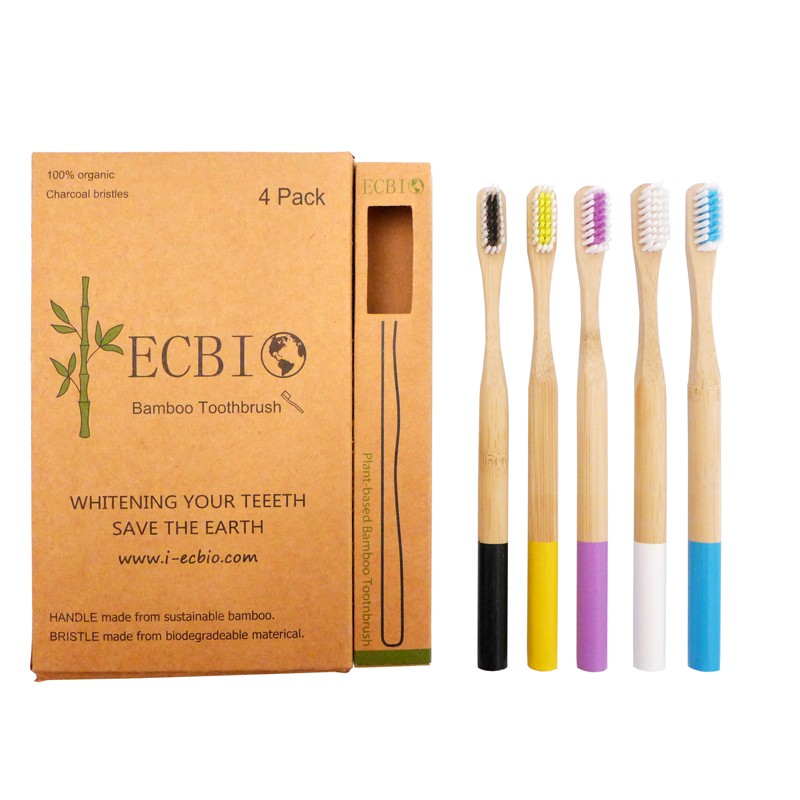Sure! Here’s an SEO-optimized blog post draft for the title:
The Environmental Impact of Plastic Toothbrushes vs. Bamboo Alternatives
Meta Description:
Compare the environmental footprints of plastic and bamboo toothbrushes. Learn why switching to bamboo can reduce waste and support sustainability efforts.
Introduction
Every year, millions of plastic toothbrushes are discarded worldwide, contributing significantly to plastic pollution. As awareness grows, bamboo toothbrushes have emerged as a popular eco-friendly alternative. But how do these two types of toothbrushes really compare in terms of environmental impact? Let’s take a closer look.
Plastic Toothbrushes: The Environmental Cost
1. Non-Biodegradable Waste
Plastic toothbrushes are typically made from polypropylene and nylon bristles, materials that take hundreds of years to decompose. Most end up in landfills or oceans, harming wildlife and ecosystems.
2. High Carbon Footprint
The production of plastic toothbrushes involves fossil fuels, generating significant greenhouse gas emissions during manufacturing and transportation.
3. Limited Recycling Options
Due to their mixed materials (plastic handle and nylon bristles), toothbrushes are rarely recycled, resulting in massive landfill accumulation.
Bamboo Toothbrushes: A Greener Alternative
1. Renewable and Biodegradable Handles
Bamboo grows rapidly without pesticides or fertilizers. Its handles biodegrade naturally in months, reducing landfill waste drastically.
2. Lower Carbon Emissions
The cultivation and processing of bamboo require less energy compared to plastics, resulting in a smaller carbon footprint.
3. Eco-Friendly Packaging
Many bamboo toothbrush brands use recyclable or compostable packaging, further reducing environmental harm.
Limitations and Considerations
- Bristle Material: Most bamboo toothbrushes still use nylon bristles, which are not biodegradable. Users should remove bristles before composting the handle.
- Transport Emissions: Bamboo toothbrushes are often produced in Asia, so shipping emissions should be considered.
- Durability: Bamboo toothbrushes may have a shorter lifespan if not properly cared for.
How to Minimize Your Impact
- Choose bamboo toothbrushes with biodegradable or easily removable bristles.
- Dispose of used toothbrushes responsibly: compost the handle and recycle bristles if possible.
- Support brands with transparent sourcing and minimal packaging.
- Consider toothbrush subscription services to reduce packaging waste.
Conclusion
While plastic toothbrushes have a significant negative environmental impact, bamboo alternatives offer a more sustainable solution, particularly when combined with mindful disposal and purchasing habits.
Making the switch to bamboo is an impactful step toward reducing your plastic footprint and supporting a healthier planet.
Keywords:
plastic toothbrush environmental impact, bamboo toothbrush benefits, biodegradable toothbrush, sustainable oral care, eco-friendly toothbrush comparison
Would you like me to create infographics or comparison tables for this article?
















